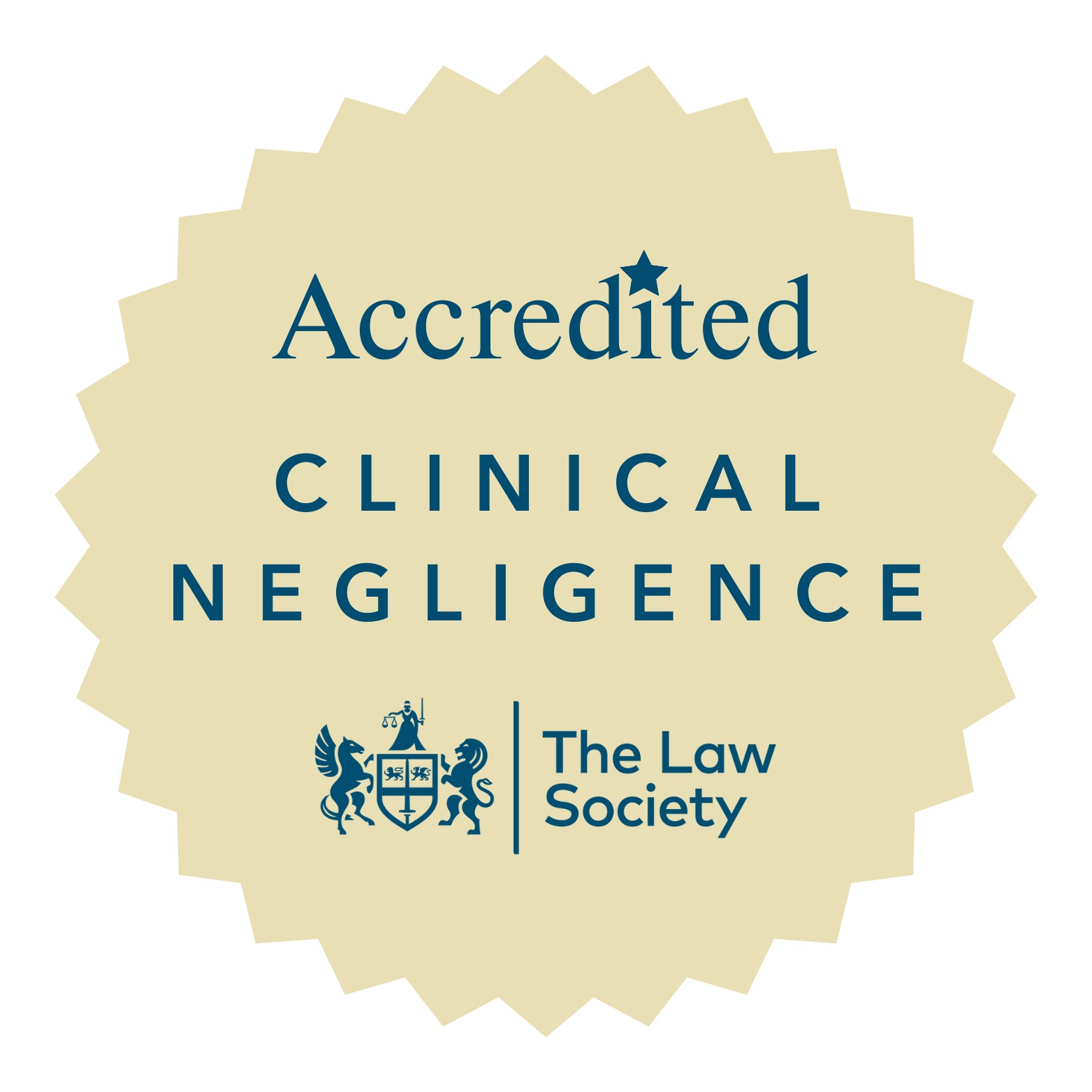Ischaemic Amputations Solicitors & CLI Limb Loss Claims.
When a person develops ischaemia or a serious limb infection, timely and appropriate medical intervention is critical.
If the blood supply to a limb becomes severely restricted, or an infection spreads unchecked, there may come a point where the damage is irreversible.
In some cases, medical professionals fail to act quickly enough. When this happens, a patient can suffer avoidable tissue loss, gangrene, or ultimately require amputation.
At Lanyon Bowdler, we specialise in claims involving delayed diagnosis and substandard management of vascular conditions and infections leading to limb loss. We are proud to be ranked in Tier 1 by Legal 500 and Band 1 by Chambers UK for our work in medical negligence law.
We recognise that amputation following ischaemia or infection is often traumatic, both physically and emotionally, particularly when you are left feeling more could have been done.
That’s why we provide not only legal expertise, but also reassurance, clarity, and genuine care throughout the process of bringing a claim. If you’ve suffered a limb loss as a result of poor vascular or infection-related care, we’re here to help.
Our initial appointment is free and confidential, and most claims can be pursued on a no win, no fee basis, so there’s no financial risk in exploring your legal options.
Our Expertise in Ischaemia Negligence Claims
At Lanyon Bowdler, we have specialist expertise in representing people who have lost a limb as a result of medical negligence involving ischaemia or infection.
We handle claims involving delayed diagnosis of Critical Limb Ischaemia (CLI), missed opportunities for vascular intervention, and failures to act on signs of serious infection particularly in patients with diabetes.
These cases are medically complex and often emotionally overwhelming, but our experienced medical negligence team will guide you with care and empathy. We work with leading medical experts to build strong claims, and we are thorough in uncovering where standards of care fell short.
Our team is ranked in Tier 1 by Legal 500 and Band 1 by Chambers UK, reflecting the high level of knowledge and support we bring to every case. You’ll have access not only to expert legal advice, but also to wider rehabilitation and support services, where appropriate.
If you believe your amputation could have been avoided, we’re here to help you get answers and to seek the compensation you deserve.
We understand that the thought of bringing a legal claim can feel daunting — particularly after such a significant life event.
That’s why most ischaemia and infection-related amputation claims are handled on a No Win No Fee basis.
This means there are no upfront legal costs to pay, and if your claim is unsuccessful, you won’t be expected to cover our fees. We’ll explain everything clearly at the outset, so you know exactly where you stand.
You can speak to us in confidence with no obligation. We’re here to help you make an informed decision about your next steps.
Your Ischaemic Amputation Claims questions answered
Critical Limb Ischaemia (CLI) is a serious and advanced form of peripheral arterial disease, often causing severe pain, open sores, and in some cases, tissue death.
Treatment of CLI is normally with an angioplasty or bypass graft, however, in some cases, an amputation may be unavoidable.
Our medical negligence team is highly experienced in investigating cases where opportunities to save a limb were missed, such as failures to refer for urgent vascular assessment, poor management of risk factors like diabetes, or delays in surgical intervention.
Yes, if you have lost a limb due to delays or mistakes in the diagnosis or treatment of Critical Limb Ischaemia (CLI), you may be able to bring a medical negligence claim.
This could include situations where symptoms were missed, urgent referral was delayed, or treatment options were not properly explored before amputation took place.
Each case will depend on its own facts, but if earlier intervention might have avoided the need for amputation or reduced the extent of tissue loss, then it is likely a claim could be brought.
We can help you understand what went wrong, and whether the care you received fell below acceptable medical standards.
Amputation following ischaemia may be considered negligent if there was a failure to diagnose or treat the condition promptly. In many cases, early signs of reduced blood flow are missed or misinterpreted, meaning patients are not referred for vascular review until their condition has progressed too far.
If opportunities were missed to restore circulation through revascularisation, medication, or urgent surgical intervention, the resulting limb loss may have been avoidable. Negligence can also occur when symptoms such as pain, discolouration, or ulcers are not taken seriously, particularly in patients with known risk factors.
Ischaemia occurs when there is an insufficient supply of blood to a part of the body, most commonly the legs or feet. This may be due to a blockage in the arteries, often caused by a build-up of fatty deposits (atherosclerosis).
Other contributing factors include smoking, high cholesterol, and high blood pressure, but by far the most significant risk factor is diabetes.
People with diabetes are more likely to develop peripheral arterial disease, and poor blood sugar control can damage the blood vessels over time.
If these risks are not properly managed by a healthcare professional, or warning signs are overlooked, ischaemia can progress to critical levels.
Diabetes affects the body’s circulation and ability to heal. Over time, high blood sugar can lead to narrowing or hardening of the arteries, reducing blood flow to the legs and feet. It can also damage the nerves, making it harder to feel pain or detect injuries early.
As a result, ulcers and infections may go unnoticed and untreated. If ischaemia is present at the same time, the limb may be starved of oxygen, meaning tissue cannot recover.
Without urgent vascular and wound care, this combination can quickly lead to gangrene and the need for surgical amputation. Healthcare professionals have a duty to monitor for these risks and act without delay.
Yes. In its early stages, CLI can sometimes be mistaken for musculoskeletal issues or diabetic neuropathy. Patients may report leg pain, numbness, or non-healing wounds, which may not be linked to arterial disease straight away.
If healthcare providers fail to carry out a vascular assessment or refer to a specialist, this can result in a delay that allows the condition to worsen.
Misdiagnosis or inadequate investigation is a common basis for medical negligence claims where CLI progresses to limb loss.
What our clients say.
Our awards and accolades.
Contact our Ischaemia Amputation Claim Specialists
If you or a loved one has lost a limb following delays and negligence in the treatment of diabetes, ischaemia, Critical Limb Ischaemia (CLI), or a serious infection, and you believe that the outcome could have been avoided, you may be entitled to make a medical negligence claim for compensation.
Our specialist medical negligence solicitors are experienced in handling complex amputation claims linked to vascular mismanagement and delayed diagnosis. We understand the physical, emotional and financial impact that follows the loss of a limb, and we’re here to guide you through the legal process with clarity, compassion and expertise.
Lanyon Bowdler is a nationally recognised law firm serving England and Wales, praised for our excellence in clinical negligence work. We are consistently ranked in Tier 1 by Legal 500 and Band 1 by Chambers UK, reflecting the high standard of legal service and client care we offer. Our team will work closely with you to investigate what went wrong, seek answers, and pursue the compensation you deserve to support your recovery and independence.
With offices in Shrewsbury, Bromyard, Conwy, Hereford, Ludlow, Oswestry, and Telford, we support clients across Shropshire, Herefordshire, Mid and North Wales, and regularly act for individuals throughout the Midlands and nationally. No matter where you are in England or Wales, we can help.
Get in touch today. We listen, we care, and we are here to help you move forward. Call us or complete our online enquiry form to find out how our expert team can support you.
Meet the team.
Case studies.
Latest knowledge.
Our awards and accolades.
Get in touch.
"*" indicates required fields

 Back
Back



































 Case Study
Case Study







 Blog
Blog


 Podcast
Podcast















